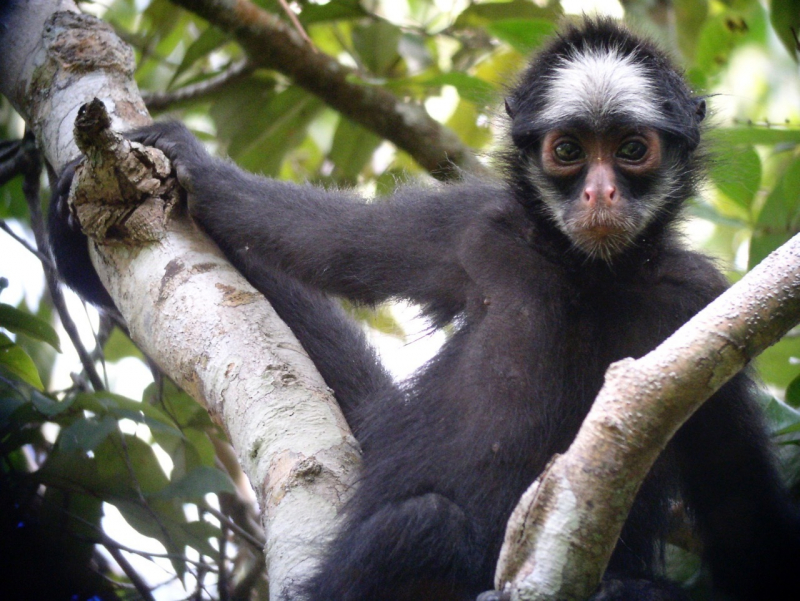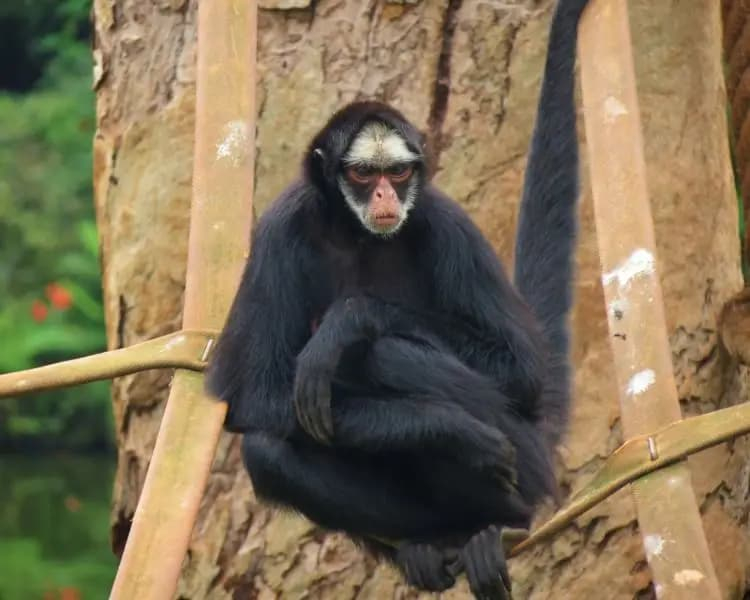White Cheeked Spider Monkey
The white-cheeked spider monkey is a type of arachnid monkey, a sort of New World monkey, endemic to Brazil. It goes around the wilderness shelter in small family groups of two to four creatures, which are a component of larger groups of twenty to thirty-two creatures. This monkey enjoys leaves, blooms, organic materials, bark, honey, and tiny insects. It also plays a crucial role in the spread of forest tree seeds. A female gives birth to a child after a 230-day incubation period.
The creature's status as a protected species has been determined to be "jeopardized" by the Worldwide Association for the Preservation of Nature. Their residences are located on higher ground in the tropical bush. The white-cheeked insect monkey was listed as an imperiled species in 2008 after a survey revealed that over the course of three generations, the population had decreased by half. Hunting and the natural environment's unfavorable conditions can be blamed for this reduction. As soybean growth has expanded, this pattern is expected to continue. Additionally, parts of their home have been destroyed to make room for big interstates and a lot of rainforests.












